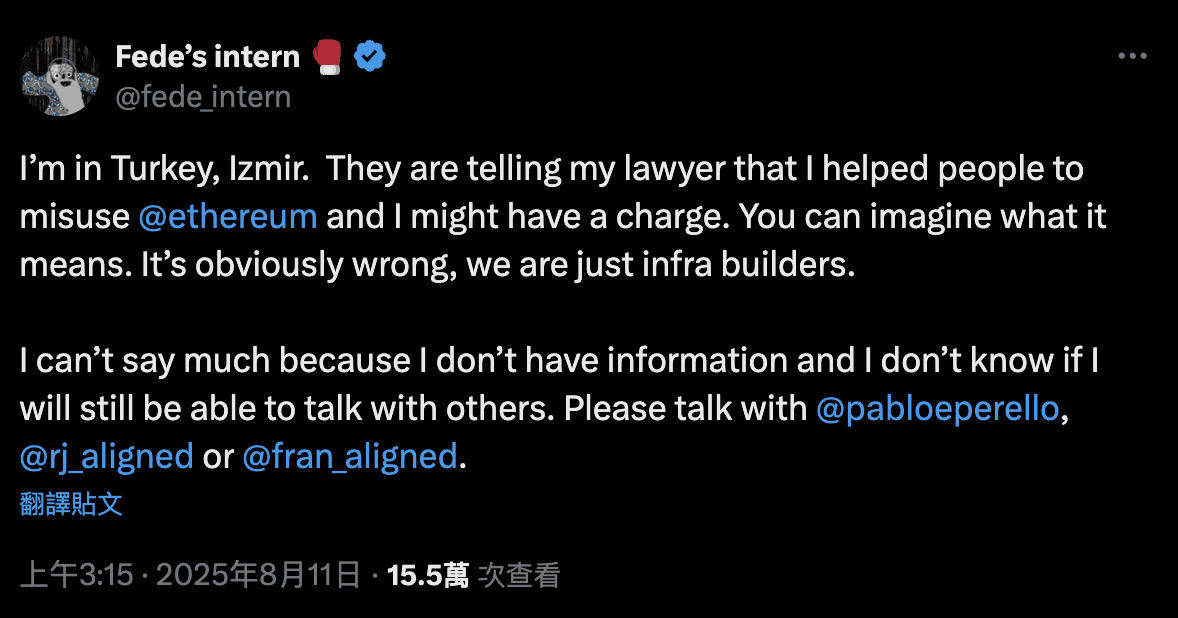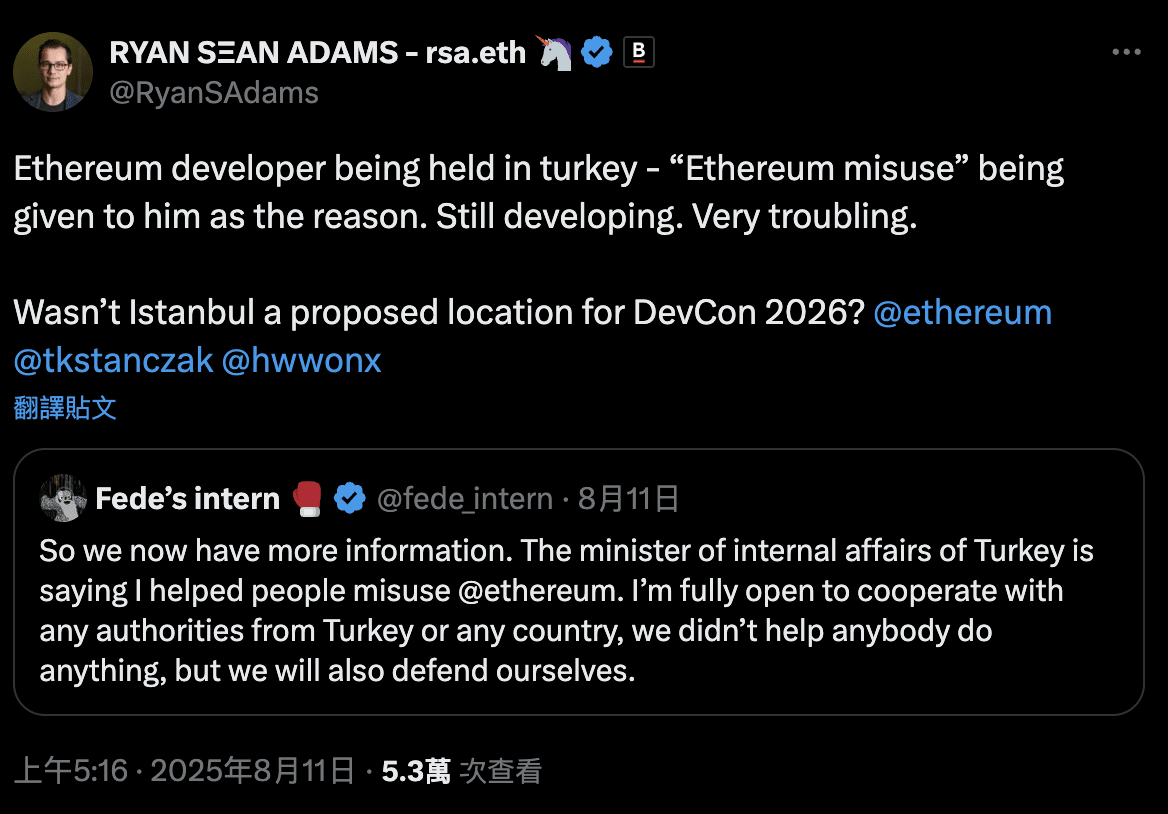Turkey accuses of ‘abusing Ethereum,’ the developer denies and emphasizes transparent operations.
An Argentine Ethereum developer who identifies as 'Fede’s Intern' was recently detained in Izmir, Turkey, for allegedly assisting others in 'abusing the Ethereum blockchain.' Fede’s Intern revealed this on August 10 on the social platform X, stating that the Turkish interior minister directly accused him of involvement in the abuse of blockchain networks.
 Source: X/@fede_intern An Argentine developer was recently detained in Izmir, Turkey, for allegedly assisting others in 'abusing the Ethereum blockchain.'
Source: X/@fede_intern An Argentine developer was recently detained in Izmir, Turkey, for allegedly assisting others in 'abusing the Ethereum blockchain.'
However, he emphasized that he is merely an infrastructure developer, and all work is open and transparent, with no involvement in any criminal activities. He also revealed that his company spans over 12 industries, is headquartered in Europe, and collaborates with multiple governments, currently in contact with high-level officials in Europe, the United States, the UAE, and Asia, hoping to assist in resolving the incident.
Details of the accusations remain unclear, and the crypto community questions the legal basis.
As of now, Turkish officials have not publicly clarified the legal definition of 'abuse' nor confirmed whether formal charges have been filed. Fede’s Intern expressed a willingness to fully cooperate with investigations from Turkey and any other country but criticized such accusations for potentially criminalizing legitimate blockchain development activities.
He wrote in a post: 'Privacy is not a crime; we should pursue the real offenders, not developers.'
Industry insiders point out that such vague accusations could set a dangerous precedent for the open-source community. Some observers suspect that the case may be related to actions by international organizations like Interpol or Europol, as Turkish police did not make an immediate arrest at the border but are waiting for more information to decide on further actions.
International cases have raised concerns about the legal risks for developers.
This case has quickly sparked discussions within the crypto industry, being compared to other high-profile recent cases, such as Tornado Cash co-founder Roman Storm facing up to 5 years in prison for operating an unlicensed money transmission business, and Binance executives being detained overseas.
Although different in nature, they both show that the intersection of blockchain development and international law is becoming increasingly complex. Once cross-border jurisdiction is involved, accusations can escalate quickly, and the legal gaps between different judicial systems can make the case's direction unpredictable. Some members of the crypto community believe that misunderstandings due to language translation or a lack of understanding of infrastructure operations could lead to unnecessary legal disputes.
Turkey's regulations are tightening, raising concerns about the safety of Devcon 2026.
In the past year, Turkey has actively tightened cryptocurrency regulations, including requiring exchanges to obtain licenses and strengthening anti-money laundering measures. This incident has raised concerns in the industry that the government may enforce stricter laws, potentially affecting legitimate developers.
Bankless founder Ryan Sean Adams bluntly stated that the incident is 'extremely concerning' and questioned whether Istanbul is still a suitable host for Ethereum Devcon 2026.
 Source: X/@RyanSAdams Bankless founder Ryan Sean Adams questions whether Istanbul is still a suitable host for Ethereum Devcon 2026.
Source: X/@RyanSAdams Bankless founder Ryan Sean Adams questions whether Istanbul is still a suitable host for Ethereum Devcon 2026.
Although Fede’s Intern expressed intentions to leave Turkey and continue legal battles abroad, the case has become a focal point for global blockchain developers, highlighting the potential risks and uncertainties developers face in an increasingly tightening regulatory environment.
This article was generated by the encryption agent summarizing information from various sources, reviewed and edited by (Crypto City). It is still in the training stage, and there may be logical biases or information errors. The content is for reference only and should not be considered investment advice.
‘A developer was arrested in Turkey! The reason was the abuse of Ethereum; the internet questions: Is developing blockchain illegal?’ This article was first published in 'Crypto City'.


